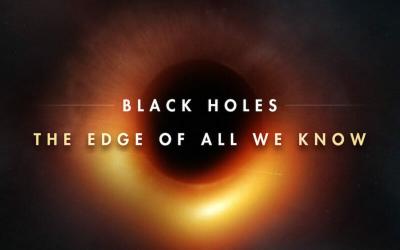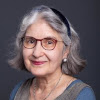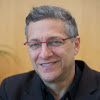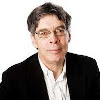
Watch Peter Galison as he discusses his latest film with esteemed colleagues Lorraine Daston and Simon Schaffer, and then answers questions about the film from friends of the Consortium.

Watch Peter Galison as he discusses his latest film with esteemed colleagues Lorraine Daston and Simon Schaffer, and then answers questions about the film from friends of the Consortium.
2021 Albert M. Greenfield Forum in the History of Science
What can black holes teach us about the boundaries of knowledge? These holes in spacetime are the darkest objects and the brightest—the simplest and the most complex. With unprecedented access, Black Holes | The Edge of All We Know follows two powerhouse collaborations. Stephen Hawking anchors one, striving to show that black holes do not annihilate the past. Another group, working in the world’s highest altitude observatories, creates an earth-sized telescope to capture the first-ever image of a black hole. Interwoven with other dimensions of exploring black holes, these stories bring us to the pinnacle of humanity’s quest to understand the universe.
In this video, historians of science Lorraine Daston and Simon Schaffer join Peter Galison for a roundtable discussion about the film, its scientific, philosophical and artistic content, and the choices Peter made as director. Afterwards, Peter Galison answers questions about the film from friends of the Consortium.
The movie, Black Holes | The Edge of All We Know, is available now on Netflix, or go to https://www.blackholefilm.com to learn about the movie, and find other options for viewing it.
Questions or comments about this event or others like it? Let us know.
To cite this content, please use footnote:
"Behind the Scenes: Black Holes | The Edge of All We Know," Consortium for History of Science, Technology and Medicine, accessed Month Day, Year, /video/120.

Lorraine Daston is Director Emerita of the Max Planck Institute for the History of Science in Berlin, and Visiting Professor in the Committee on Social Thought at the University of Chicago. She has published on a wide range of topics in the history of science, including the history of probability and statistics, wonders in early modern science, the emergence of the scientific fact, scientific models, objects of scientific inquiry, the moral authority of nature, and the history of scientific objectivity. She is the recipient of the Pfizer Prize and Sarton Medal of the History of Science Society, the Schelling Prize of the Bavarian Academy of Sciences, the Lichtenberg Medal of the Göttingen Academy of Sciences, the Luhmann Prize of the University of Bielefeld, and honorary doctorates from Princeton University and the Hebrew University. In 2018 she was awarded the Dan David Prize in the History of Science.

Peter Galison is a physicist, historian of science, and filmmaker at Harvard University, where he is the Joseph Pellegrino University Professor. In 1997, he was named a MacArthur Fellow. In 1998, Galison was awarded the Pfizer Prize by the History of Science Society for the best book in the History of Science. In 1999, he received the Max Planck and Humboldt Stiftung Prize. In 2017, he won the American Physical Society’s Abraham Pais Prize. With his Event Horizon Telescope colleagues, Galison shared in the 2020 Breakthrough Prize in Fundamental Physics for the first image of a black hole.

Simon Schaffer is Professor of History and Philosophy of Science at the University of Cambridge. He was trained in natural sciences and history and philosophy of science at the University of Cambridge and Harvard University. He has taught history of the sciences at Imperial College, London, at UCLA and at the École des Hautes Études en Sciences Sociales, Paris. He is a Fellow of the British Academy and Sarton Medalist of the History of Science Society. His research addresses the practices, materials and organization of scientific inquiry between the seventeenth and nineteenth centuries, including studies of astronomy, natural philosophy, technology and the physical sciences. Schaffer has collaborated with several museum and gallery projects, is a Caird Medalist of the National Maritime Museum, and is a member of the advisory board of the Science Museum.
Black Hole Initiative, Harvard University
The archive of Stephen Hawking has been saved for the nation - Cambridge University Libraries, May 27, 2021
Astronomers Image Magnetic Fields at the Edge of M87's Black Hole - Event Horizon Telescope, March 24, 2021
The Consortium's collections provide many opportunities to learn more about the history of astrophysics, astronomy, and the science of black holes.
Our cross-instiutional search tool allows researchers to investigate materials across multiple institutions from a single interface. With more than 4.4 million catalog records of rare books and manuscripts, the Consortium's search hub offers scholars and the public the ability to identify and locate relevant materials.
William A. Fowler Papers, Caltech Archives
John Archibald Wheeler Papers, American Philosophical Society
Measuring spacetime: From the Big Bang to black holes, by Max Tegmark, American Philosophical Society Library
Oral History Interview with Dennis William Sciama, April 14, 1978, American Institute of Physics
Oral History Interview with Allan Sandage, May 16, 1974, American Institute of Physics
Oral History Interview with Roger Penrose, January 24, 1989, American Institute of Physics
Oral History Interview with Don Page, December 31, 1988, American Institute of Physics
Joseph Martin, Solid State Insurrection: How the Science of Substance Made American Physics Matter
Joanna Behrman, A Comparative Analysis of Women's Higher Education in Physics
Terry Christensen, John Archibald Wheeler: A Study in the Pedagogy, Philosophy, and Politics of 20th Century Physics
© 2025 Consortium for History of Science, Technology and Medicine | Copyright Infringement